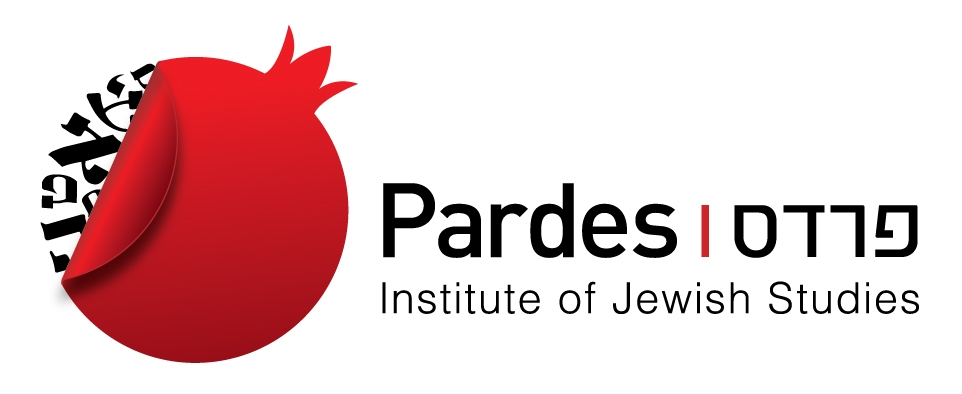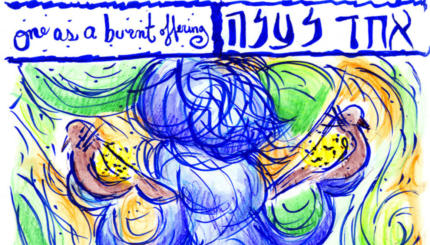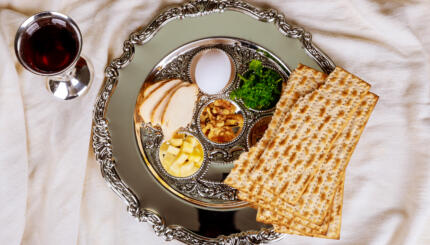Commentary on Parashat Bo, Exodus 10:1-13:16
Questions
1. How many plagues are there in Bo and what are they?
2. On what wind did the locusts come and on what wind were they blown away, and to where?
3. Name any seven of the mitzvot given in Bo.
With your help, My Jewish Learning can provide endless opportunities for learning, connection and discovery.
4. What are the two Hebrew names for the month in which Passover falls?
5. On what day of the month were the Israelites commanded to select the lamb for sacrifice? On what day were they commanded to sacrifice it? When were they told to eat it?
6. What is the penalty for eating leaven during Passover?
7. What was dipped in the blood of the sacrifice and then used to put the blood on the lintel and doorposts?
8. How many Israelites went into Egypt counting Joseph and his two sons? How long were the Israelites there and how many came out according to the text?
9. Is the use of tefillin mentioned in this week’s parashah once, twice, or three times?
10. We are told that Moses stretches forth his hand toward the heavens and there was a thick darkness that could be felt in all the land of Egypt for three days. Then we are told “they saw not one another, neither rose any from his place for three days.” How does Rashi explain this mentioning of three days of darkness twice and how does he interpret why the darkness was brought?
11. We are told that all the first born children of the Egyptians were to die. Does Rashi agree that that is what happened, and if no, what does he say?
12. According to midrash, the children of Israel were redeemed because of four meritorious acts. What were they?
Answers
1. There are three plagues in Parashat Bo: locusts (10:12), darkness (10:21), and death of the first born Egyptians (11:5).
2. The locusts came on the East wind, left on the West wind, and were driven into the Red Sea (10:13,19).
3. The mitzvot in Parashat Bo are to observe Rosh Hodesh (establishing the months); to ritually slay the Passover offering; to eat of the offering; to fully roast the offering; to leave no flesh of the offering; to remove hametz (leaven) from our dwellings; to eat matzah on Passover; to have no hametz in one’s possession during Passover; to eat nothing containing hametz during Passover; to give nothing to eat of the Passover offering to an apostate Jew; to give no part of the Passover offering to a partial proselyte or resident (not fully converted); to carry no flesh of the Passover offering outside; to break no bone of the Passover offering; to allow no uncircumcised person to eat of the Passover offering; to sanctify the first-born, whether human or animal; to eat no hametz during Passover; to see no hametz during Passover; to recount the exodus from Egypt forever; to redeem the first-born donkey; to break the neck of an unredeemed first-born donkey (12:2-28,46-49;13:2-3).
4. The two Hebrew names are Aviv and Nisan (13:4).
5. The Israelites were commanded to select the lamb on the 10th, sacrifice it on the14th, and finish eating it before morning (12:3, 6, 10).
6. The punishment is having one’s soul cut off from Israel (12:19).
7. The Israelites used a bunch of hyssop (12:22).
8. Originally, 70 Israelites went down to Egypt. The Israelites were there for 430 years and in this parashah it says that about 600,000 came out of Egypt (12:40, 37).
9. Tefillin is mentioned twice–in verses 13:9 and 13:16.
10. Rashi says there were two sets of darkness, three days each; the first was so dark that the Egyptians could not see one another; the second was twice as thick and they could not move (10:22-23). Rashi also explains that there were any number of wicked Israelites who did not want to leave Egypt and God was going to kill them during the three days of darkness. He did not want the Egyptians to see this happen and say that the Israelites were killed just as the Egyptians. Also, the period of darkness allowed the Israelites to go through the homes of the Egyptians to see what they had. The Egyptians would likely say they had nothing when the Israelites asked them for what they needed.
11. Pharaoh was a first born and he was spared so he could attest to God’s wonders.
12. They did not change their names; they did not change their language; they did not reveal their secrets (Moses had told them that they would leave with many Egyptian possessions); they did not abandon circumcision.
Provided by the Pardes Institute of Jewish Studies.

hametz
Pronounced: khah-METZ or KHUH-metz, Origin: Hebrew, bread or any food that has been leavened or contains a leavening agent. Hametz is prohibited on Passover.
Torah
Pronunced: TORE-uh, Origin: Hebrew, the Five Books of Moses.


